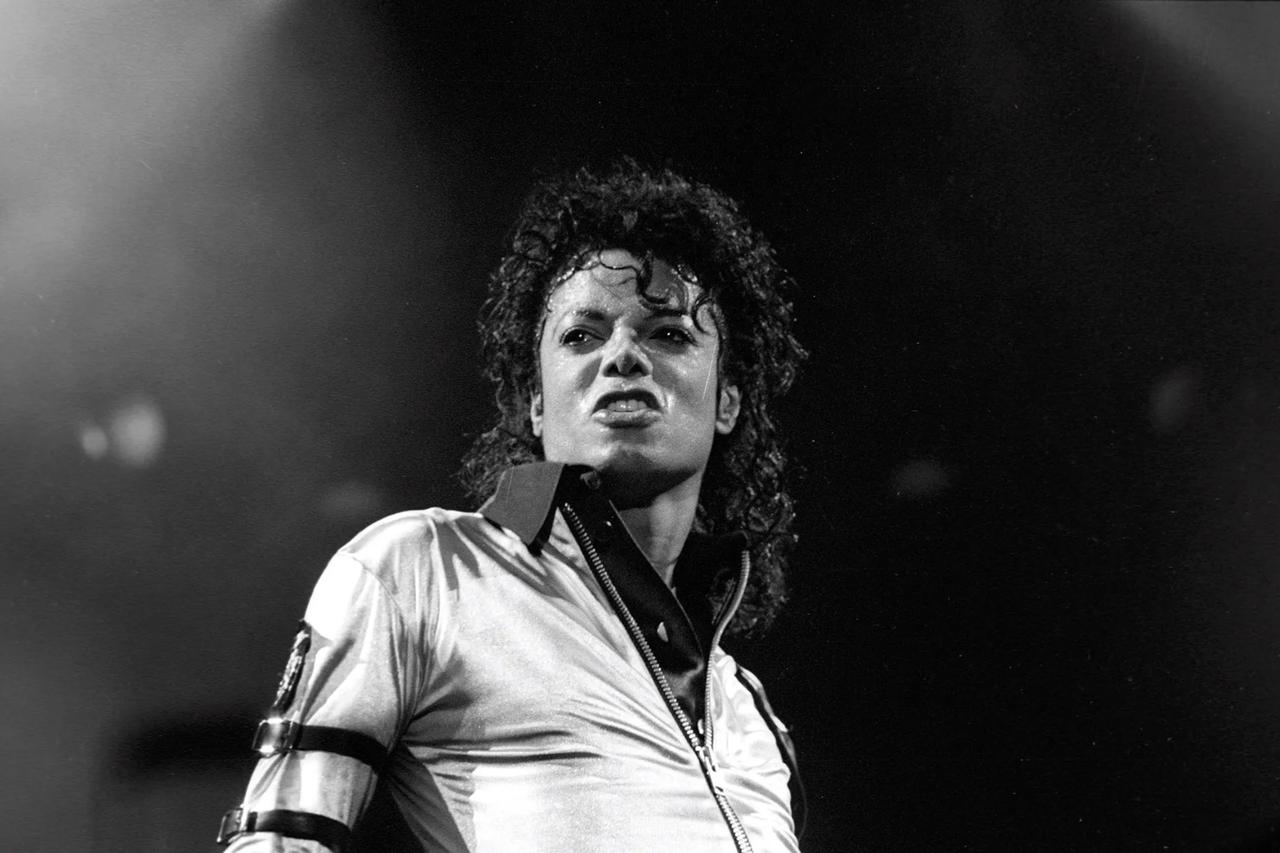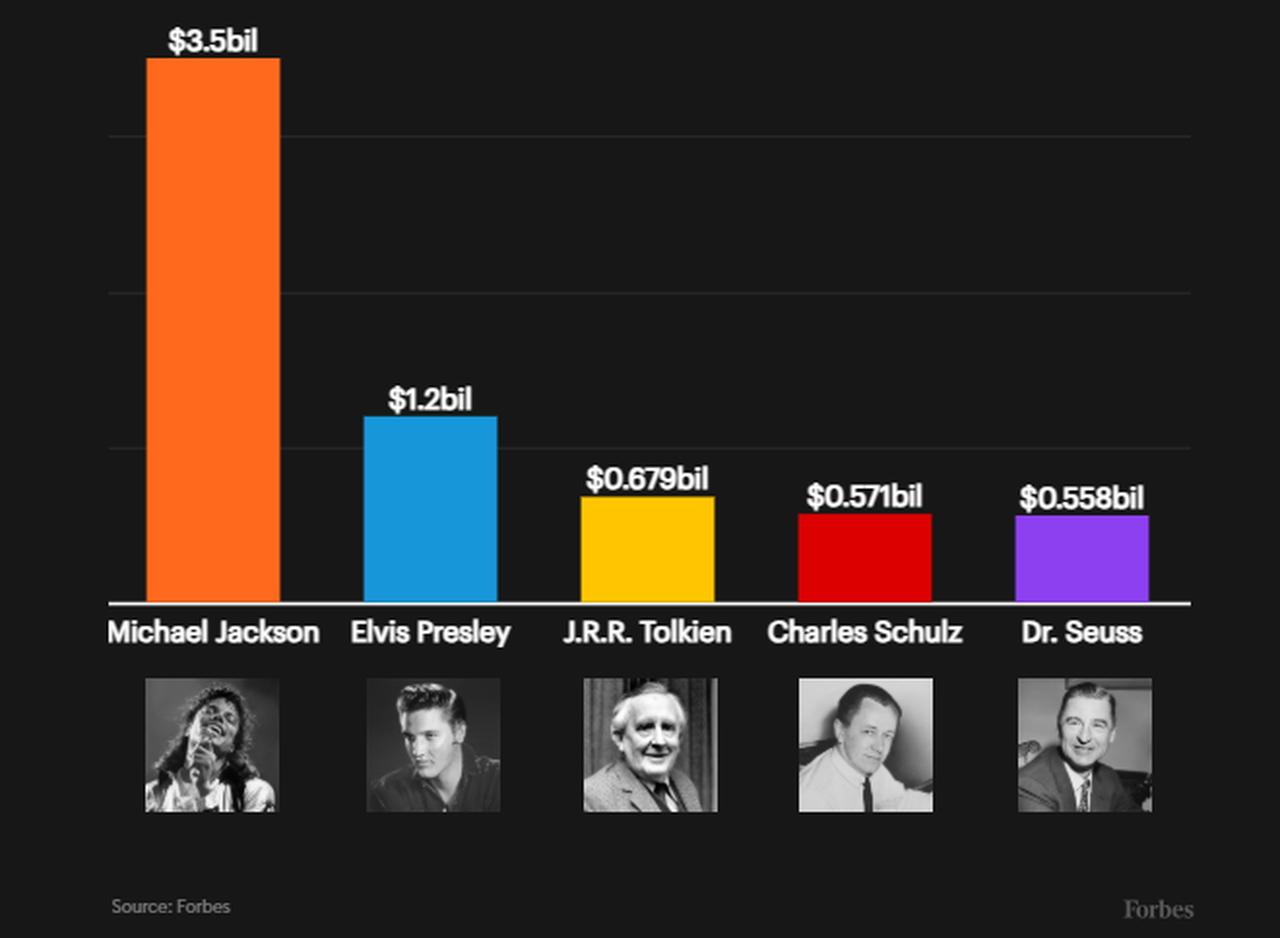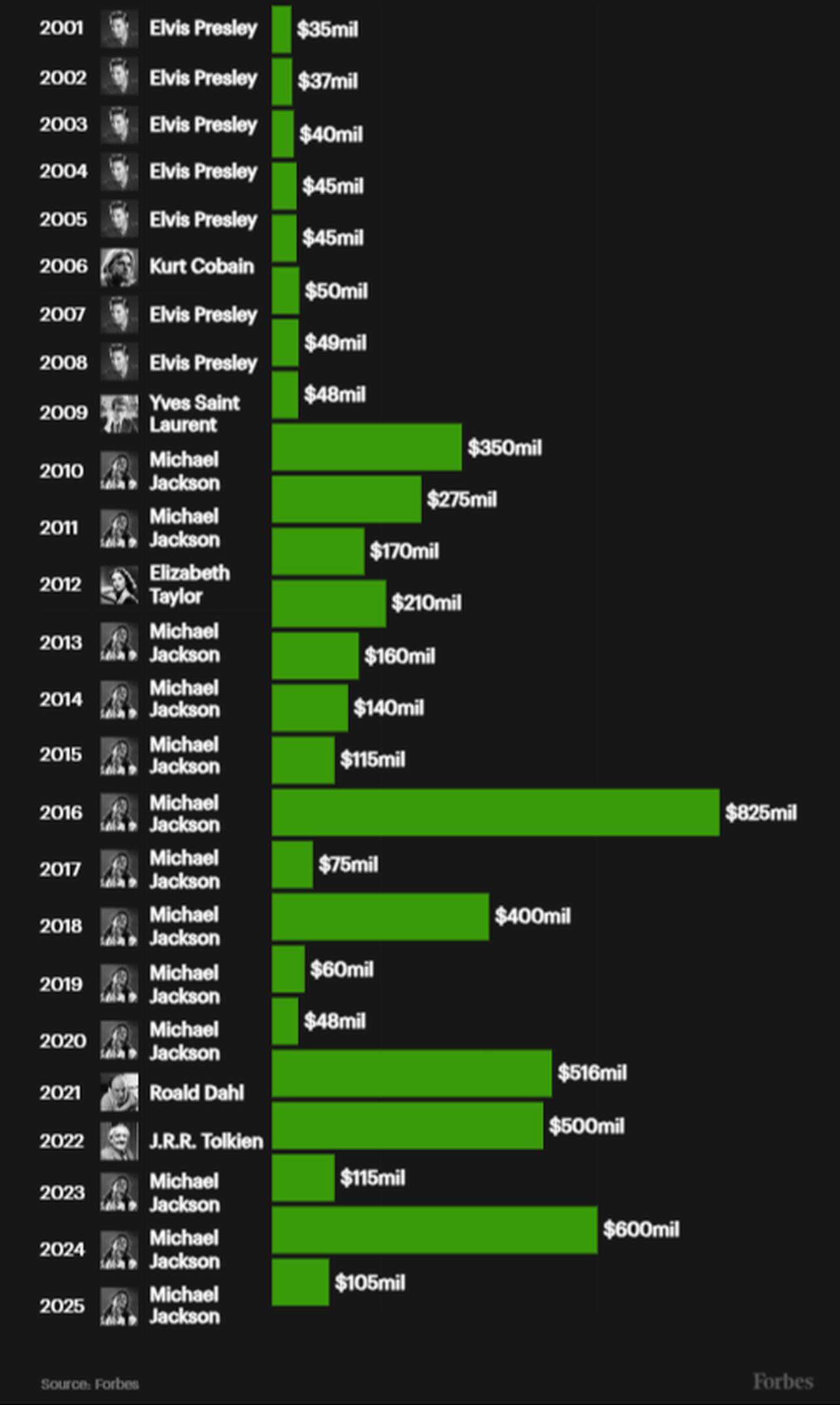
The estate of Michael Jackson has once again topped Forbes’ annual ranking of the highest-paid dead celebrities, confirming that the former King of Pop continues to generate more posthumous income than any other late star. According to the 25th edition of the list, Jackson’s estate brought in $105 million in the past 12 months, lifting his total earnings since he died in 2009 to an estimated $3.5 billion.
The ranking, published by Forbes entertainment reporter Matt Craig, shows that music estates remain the dominant force in what has become a structured, investment-driven market for cultural legacies.
The 2025 list is once again led by musicians, with 10 of the top 13 names coming from the music world. This reflects the fact that global pop catalogues tend to keep selling, streaming and being licensed long after the artist’s death, and that recording artists usually receive a higher share from their intellectual property than screen stars do from old films or TV series.
In this year’s ranking, estates of figures such as Prince, John Lennon and Bob Marley remained solid earners because their master recordings and publishing rights continue to bring in revenue from multiple platforms. The list was also joined by the estates of The Notorious B.I.G., Miles Davis and Jimmy Buffett, which secured large one-off paydays through the sale of rights to third parties backed by private equity and other financial players.

Forbes noted that, although Elvis Presley was number one on the very first list in 2001 and has never dropped off it since, it was Jackson who “broke the paradigm” in terms of how much can be earned after death. One estate lawyer told the magazine that “it is MJ, then an enormous canyon, then everybody else.” Jackson’s advantage comes from decisions he made while alive.
He not only owned his own publishing and master recordings, but also bought the ATV catalog in 1985 for $47.5 million (roughly $142 million in today’s value), gaining control over almost 4,000 songs, including the Lennon-McCartney hits. That catalog was later folded into Sony’s music business, and when the estate sold its stake to Sony in 2016 for $750 million (around $1 billion in today’s money), it set a benchmark for music-asset sales.
The estate did not stop there. In 2024, it sold a 50% stake in Jackson’s own publishing and master recordings to Sony for $600 million.
That transaction was described as being “against Jackson’s wishes” by his mother, Katherine, who tried to block it in court. Even so, the deal went ahead, and it became one of the biggest single sources of income for any celebrity estate in the past year.
The dispute also underlined another point in the Forbes report: it is increasingly rare for a late celebrity’s family to keep full control of name, image, likeness and creative works, as was the case for Marilyn Monroe, Albert Einstein or Muhammad Ali when their estates were at their peak.
Between those mega-deals, Jackson’s brand never stopped working. His concert film This Is It, released shortly after he died in 2009, made $267 million at the global box office. A Cirque du Soleil tour themed around Jackson and launched in 2012 reached $160 million in gross revenue and, at the time, made Jackson earn more than any living musician that year. That success later turned into a permanent Cirque du Soleil production in Las Vegas, Michael Jackson ONE, and also into a Broadway show, MJ: The Musical, which opened in 2022.
Together, these stage productions have reached almost $300 million in ticket sales and have been rolled out to international audiences. The Forbes piece also underlines that this growth took place despite ongoing sexual abuse allegations and the 2019 documentary Finding Neverland, which means the commercial demand for the music and the stage brand remained broadly unchanged.

The article explains that the reason musicians keep appearing on the list is twofold. First, their music has global appeal and can be licensed, streamed, or staged in multiple territories without being tied to a specific market. Second, many estates still own, or can sell, part of the so-called “residual income” that flows from publishing, master recordings, branding, and touring-related IP.
Even though the music-rights market has cooled down since the pandemic era, when some catalogs were reportedly sold for more than 20 times annual revenues, buyers are still prepared to pay high prices for top-tier, globally recognized repertoires.
This is how newcomers such as The Notorious B.I.G. and Miles Davis entered the 2025 ranking.
Not every name on the list is a musician. The report points to estates that still collect money from branded products that their owners made famous while alive.
The Arnold Palmer drink line sells an estimated $200 million worth of products each year, keeping the golfer’s name commercially active. The late NBA star Kobe Bryant’s shoes for Nike continue to sell strongly.
For Jimmy Buffett, whose estate joined the list this year, the Margaritaville brand has stretched to clothing, hotels, and even retirement communities designed for his fan base.
The common thread running through these cases is that the estates have managed to keep the brand visible, attach it to products that people are still buying, and, where possible, sell stakes to investors who can expand it.
Forbes underlines that only 13 estates made the 2025 list, and together they earned $541 million before taxes and fees. This shows how narrow the field is. Many celebrities start to fade commercially just a few years after death, and many families do not retain full control over the image or creative assets.